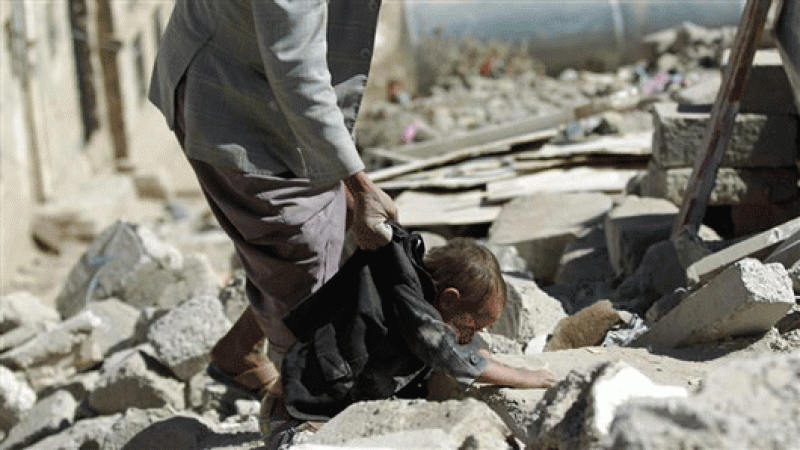
Local Editor
Yemeni Nobel Peace Prize laureate Tawakkol Karman said the world is turning a blind eye to the plight of millions of people suffering in her war-torn nation plagued by hunger and disease.
Yemen has been torn apart by a two and-a-half year-old civil war which pits the regime of resigned President Abd-Rabbu Mansour Hadi, supported by a Saudi-led military coalition, against the Houthi Ansarullah movement, the Yemeni army and forces loyal to former president Ali Abdullah Saleh.
"The world doesn't pay enough attention to Yemen. It's the forgotten land. There's a lot of suffering in our country. There's a big famine and cholera there," Karman told the Thomson Reuters Foundation.
About 21 million Yemenis - about 80 percent of the population - need aid, and cholera has killed about 2,000 people and suspected cases have reached 750,000 in what aid agencies have described as the world's worst humanitarian crisis.
"The country has been besieged for three years, state employees have been unpaid for months, and people have no access to basic services such as water, electricity, health and food," said Karman, speaking on the sidelines of the One Young World summit in Bogota, which brings together global youth leaders.
The war in Yemen, one of the Arab world's poorest countries, has killed more than 12,000 people and fighting has forced two million people to flee their homes.
"Simply put, the Arab coalition led by the Emirates and Saudi Arabia has broken its commitment towards the humanitarian situation in the country," Karman said.
"Unfortunately, this coalition deals with this war just as a battle to fire bombs and throw missiles, ignoring the consequences," she said.
The coalition has launched thousands of air strikes in a bid to dislodge the Houthis from power and have imposed a near blockade on Yemen's ports, borders and airspace.
"We call for immediate cessation of air strikes because they offer nothing but shelling of residential areas and causing more civilian casualties," Karman said.
Karman, 38, won the 2011 Nobel Peace Prize for her role in leading protests against longtime former President Ali Abdullah Saleh during the Yemeni uprising.
She was the first Arab woman and second Muslim woman to win the Nobel Peace Prize.
The coalition controls the southern port city of Aden and other areas in Yemen's south, while the Houthis control Yemen's capital Sana’a and northern strongholds.
Source: News Agencies, Edited by Website Team